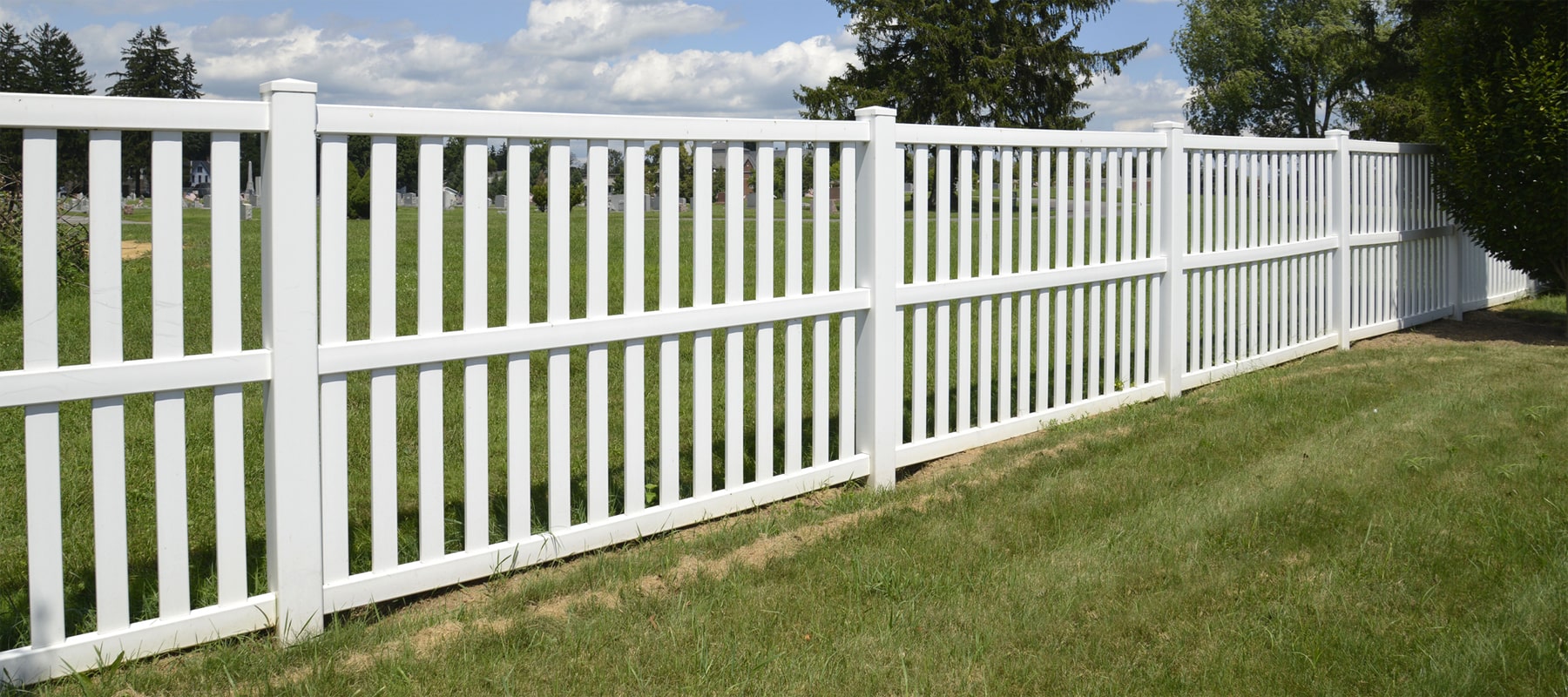How Much Does Fencing Installation Cost?
Last Updated: January 14, 2022
On This Page
Fence installation cost depends on a huge range of factors, including material, height of the fence, how much fence is installed, and local labor costs. The most common choices in today's market are chain link fence, wooden fence, and vinyl fence. Most people who install fence made of these materials are looking for some combination of privacy and security. More expensive ornamental fencing made of steel and iron are available, but this type of fence installation is considerably more expensive.
Types of Fencing #
There are multiple types of fences, with each one offering its own set of advantages and disadvantages depending on your particular area and aesthetic. Some fence types include:
- Chain-link: One of the most common fences in the commercial, industrial, and residential markets, chain-link fences offer a clear view beyond your property and make it easy to see anyone lurking around your home. Chain-link fences are the highest selling fence system in the world and offer durability at a low cost. While they are generally metallic in color, there are color coating options available.
- Ornamental: Introduced in the U.S. more than 50 years ago, ornamental aluminum fencing is a popular choice in coastal areas, since aluminum does not rust. Ornamental fences come in a wide range of styles to suit a variety of aesthetic preferences and needs. Customizations, such as rails and spirals, are readily available to truly make your fence your own.
- Vinyl: These fences are known for their durability. Vinyl fences contain ultraviolet inhibitors that protect the material from the sun, allowing it to withstand heat and sunlight without requiring constant maintenance. And because the color on vinyl fences is a "through color", scratches and dents don't mean repairs or touch-ups. Since vinyl is not organic, there is no worry of pest invasions or rotting, and it is less likely to break than organic materials.
- Wood: With a variety of colors and styles available, wood fencing is often the ideal choice for both businesses and homeowners. When people think of wood fences, they tend to picture the classic white picket fence, and for good reason; it is still one of the most popular types of fence and the most popular type of wood fence. Though wood fencing requires a higher amount of maintenance than other fence types, the beauty, longevity, and privacy it provides (with proper maintenance, of course) is unmatched.
Fence Installation Costs: #
- When receiving an estimate from a contractor, most will give a price per linear foot and not differentiate between materials and labor. The prices below reflect an average fence height of 5-6 feet tall.
- Wood fence installation costs $15-$25 per linear foot.
- Vinyl fence installation costs $25-$35 per linear foot.
- Chain link fence installation costs $7.50-$15 per liner foot.
- Most contractors will provide an estimate inclusive of all parts, including posts, gates, brackets, post caps, hinges, concrete, and all the other odds and ends that go into installing fence. However, if buying the materials yourself, all of these parts and materials will cost extra.
- Post caps and brackets are cheap, around $2.50 apiece.
- Fence posts cost $10-$30, depending on the material. Chain link, vinyl and wooden fence installation all generally call for posts to be spaced 6 to 10 feet apart. An easy way to determine how many posts are needed is to take the total linear feet and divide by ten. A more comprehensive tool is available from HooverFence.com.
- Fencing installation isn't complete without a gate or two for access. A single gate can be as cheap as $250, while a double, vehicle-accessible gate can run as much as $2500 or more.
- If existing fence needs to be removed first, this will coast an additional $2-$5 per linear foot.
- As with any home-improvement project, do it yourself fence installation is a surefire way to save 40-50%. Doityourself.com offers advice on all aspects of installing a fence.
Fencing Material Lifespans #
Different materials have different life expectancies. However, no matter which type of fencing material you choose, proper maintenance helps maximize the fence's lifespan.
- Aluminum chain-link and ornamental: These sturdy fences are cost-effective, great for large areas, and require little maintenance. Chain-link and ornamental fences have an average lifespan between 25 and 30 years, though proper maintenance may extend that.
- Vinyl: Requiring the least amount of maintenance of any fencing type, vinyl fences have the longest lifespan. Highly durable and know for its longevity, vinyl fencing has an average lifespan between 35 and 40 years.
- Wood: While, stylistically, a great choice to lend your home a classic look, wood fences typically have the shortest lifespan. Wood requires more maintenance than any other fencing material, but with proper care, wood fences can stand for 20 years.
Shopping for Fence Installation? #
- Keep in mind that the above-stated prices for fence installation are only general estimates. Individual shoppers will experience huge fluctuations in price depending on their preferences and needs. Likewise, fence installers will give a wide range of estimates. Be sure to shop around before making a final decision and don't hesitate to request references from previous customers or run a check with the local Better Business Bureau.
